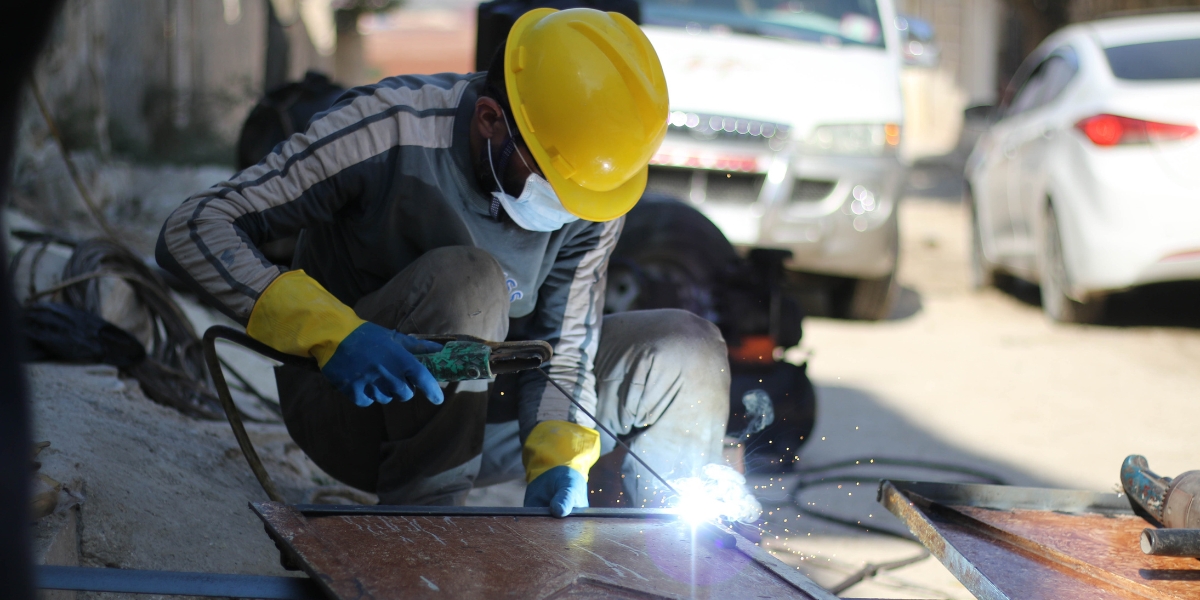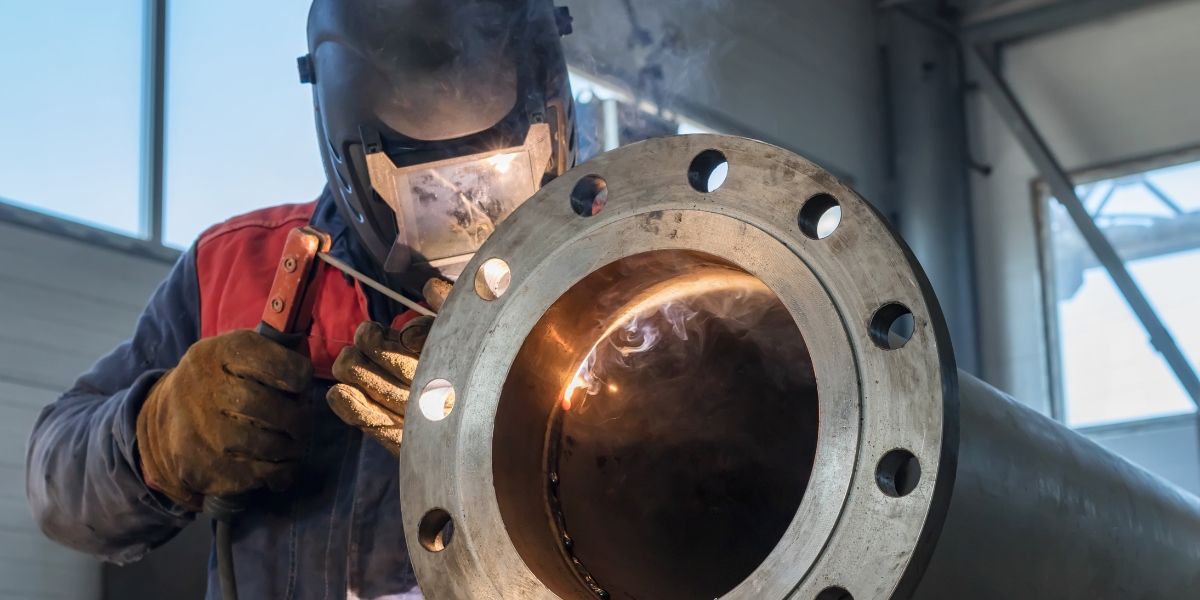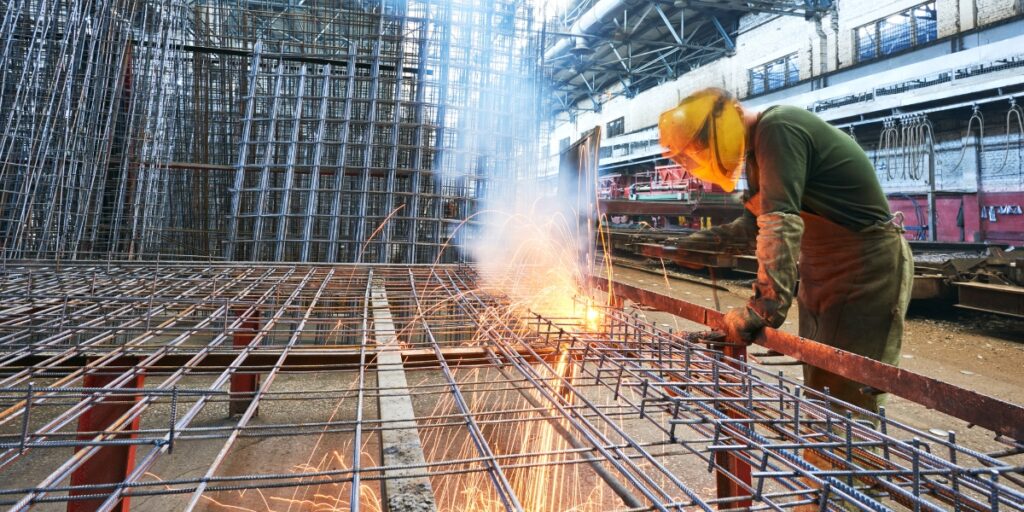Welding Where You Need It: The Industrial Maintenance Advantage
Mobile welding is the backbone of industrial maintenance. It ensures seamless operations within various sectors. This article explores its significance in machinery repairs, pipeline welding, and equipment modifications among others.
Highlighting the economic impact and future trends of mobile welding, it provides a comprehensive understanding for those engaged in industry maintenance practices.
https://youtu.be/jXVdT7LRaoA?si=7sOlx4pwUjQHRF_E
Key Takeaways
– Mobile welding plays a crucial role in industrial maintenance by providing on-site machinery repairs and modifications.
– It ensures proper functionality and structural integrity of pipelines through welding.
– Mobile welding allows for equipment modifications, customization, and optimization, leading to improved efficiency.
– Adherence to safety regulations, precision control, and high-quality welds are integral to mobile welding, ensuring safety, reliability, and longevity of equipment.

Understanding the Basics of Mobile Welding
Understanding the basics of mobile welding involves comprehending its key components, including portable welding equipment and techniques employed for on-site industrial maintenance tasks such as machinery repairs and pipeline welding.
Emphasizing on welding safety, operators must be proficient with handling various power sources like engine-driven generators or inverters that supply current to the electrode, ensuring a smoothly flowing arc for optimal fusion between base metals.
Additionally, mastering different welding techniques is vital: Shielded Metal Arc Welding (SMAW), Gas Tungsten Arc Welding (GTAW), Flux-Cored Arc Welding (FCAW), each offering unique benefits depending on job requirements.
Lastly, comprehension of suitable filler materials and protective gear completes the foundation for effective mobile welding operations in diverse industrial environments.
The Flexibility and Convenience of Mobile Welding Services
The flexibility and convenience of mobile welding services are underscored by two critical aspects: on-site repairs and minimized downtime.
On-site repairs denote the capability of professional welders to execute precise, high-quality welding tasks directly at the client’s location, eliminating the need for potentially costly and time-consuming equipment transportation.
Furthermore, this model enables a significant reduction in operational downtime, as immediate intervention facilitates quicker restoration of machinery functionality, thus mitigating productivity losses.
On-Site Repairs
On-site repairs, facilitated by mobile welding, prove crucial for the swift and efficient resolution of any machinery malfunctions within an industrial setting. They play a pivotal role in emergency handling and adherence to safety protocols.
Emergency Handling:
– Rapid response minimizes downtime due to equipment failure.
– Ensures business continuity by quickly restoring operations.
Safety Protocols:
– Compliance with stringent industry standards ensures safe repair processes.
– Regular maintenance checks prevent potential accidents caused by faulty machinery.
The ability to perform on-site repairs with the help of mobile welding is thus not merely a matter of convenience but also one of critical operational efficiency, ensuring both safety and productivity are maintained at optimal levels within an industrial environment.
Minimized Downtime
Minimized downtime, achieved through swift and efficient on-site repair services, ensures that operational disruptions are significantly reduced, thereby promoting business continuity. The implementation of mobile welding for industrial maintenance is instrumental in this process.
The relevance of emergency responsiveness cannot be overstated, as it ensures rapid intervention in the event of equipment failure or malfunction. This alacrity contributes to a reduction in lost productivity time while maintaining high safety standards. Safety protocols must be stringently adhered to during these interventions to ensure the welfare of all stakeholders.
Mobile welding combines advanced technology with skilled professionals to provide innovative solutions that keep industries running smoothly.
Different Services Offered by Mobile Welding
In the realm of industrial maintenance, mobile welding services encompass a broad spectrum of crucial applications. These include machinery repairs, pipeline welding, and equipment modifications.
The repair and maintenance of machinery, particularly in high-demand environments, necessitate meticulous attention to detail and proficiency in utilizing advanced welding techniques. This is because machinery repairs require precision and the ability to work with various materials and components.
Furthermore, the complexities inherent in pipeline welding and equipment modifications underscore the need for comprehensive knowledge and highly specialized skills. These operations not only require precision but also adherence to stringent safety protocols and industry standards.
Pipeline welding involves joining sections of pipes together, which requires expertise in welding techniques specific to pipelines. Equipment modifications, on the other hand, involve altering or customizing machinery to meet specific requirements, which demands a deep understanding of the equipment and its functionality.
Machinery Repairs
Machinery repairs often necessitate the use of mobile welding due to the complex and large-scale nature of industrial equipment. This process involves technicians with specific welding certifications, ensuring adherence to stringent safety measures during repair activities.
1. Welding Certifications: These validate a technician’s proficiency in handling various types of welding processes, guaranteeing quality and efficiency in machinery repairs.
2. Safety Measures: Essential precautions are taken to mitigate risks associated with mobile welding, including proper use of protective equipment and adherence to safe operating procedures.
3. Complexity of Industrial Equipment Repair: Mobile welding allows for on-site repair of intricate machinery components, reducing downtime.

Pipeline Welding
Pipeline integrity necessitates specialized techniques, such as fusion bonding and arc welding, to ensure safe and efficient transport of materials. These welding techniques involve the use of high temperatures to meld together separate metal pieces, creating a strong bond that can withstand extreme pressures. Safety measures are paramount in this process to prevent workplace accidents and maintain the longevity of the pipeline structure.
Arc welding is especially prevalent due to its ability to produce a high quality weld even in adverse conditions. Fusion bonding, on the other hand, utilizes heat or pressure without filler material thus producing a joint with properties similar to those of the base materials. Both methods highlight how mobile welding plays an integral role in industrial maintenance, specifically pipeline upkeep.
Equipment Modifications
Equipment modifications often involve the adjustment or enhancement of existing apparatus to improve its functionality and efficiency. The process necessitates adequate safety measures because of the inherent risks associated with welding techniques. Precise control over the modification process is essential to maintain structural integrity and performance parameters.
The application of mobile welding in equipment modification presents a flexible, efficient solution for industrial maintenance operations. Technicians can implement changes onsite, reducing downtime and increasing productivity. Mobile welding also offers versatility in applying various techniques suitable for different materials and designs.
Safety measures, such as protective gear and safe work procedures, are crucial during equipment modifications to mitigate potential hazards. Therefore, proper training in handling welding tools and understanding safety protocols is imperative for any personnel involved in the process.
The Economic Impact of Mobile Welding in Industrial Maintenance
The economic impact of mobile welding in industrial maintenance plays a significant role in cost savings and productivity enhancements.
Examination of its financial implications reveals that mobile welding services potentially reduce expenditure through their on-site capabilities, negating the need for transportation or movement of large-scale industrial equipment.
Concurrently, improvements in productivity are observed due to reduced machine downtime, fostering an environment where uninterrupted operation becomes feasible, thus augmenting overall output levels.
Cost Savings
Significant cost savings can be achieved in industrial maintenance through the utilization of mobile welding, as it facilitates on-site repairs and modifications, thereby reducing downtime. This efficiency is characterized by several key factors:
1. Welding Efficiency: Mobile welding optimizes resource usage, minimizes waste and boosts productivity due to its capability for immediate application.
2. Safety Protocols: Incorporating safety measures reduces potential accidents which may cause additional costs and delays.
3. Reduced Transportation Costs: The need for transporting damaged equipment to a repair facility is eradicated with mobile welding services.
4. Decreased Downtime: Swift on-site response results in minimal disruption to operations, mitigating the negative impact of extended downtime.
Productivity Enhancements
Productivity enhancements in various sectors can be achieved through the adoption of on-site repair services, which reduces downtime and streamlines operations. Mobile welding plays an essential role in this process by providing immediate response to maintenance issues.
Safety measures are integral to these operations, ensuring that work is conducted without hazard or interruption. These precautions may include the use of specific tools and protective equipment, adherence to operating procedures, and compliance with safety regulations.
Welding techniques also contribute significantly to productivity improvements. Advanced methods such as Gas Tungsten Arc Welding (GTAW) or Shielded Metal Arc Welding (SMAW) ensure precise, high-quality repairs while minimizing the need for rework. Consequently, these techniques strengthen operational efficiency by reducing delays and maintaining machinery uptime.

Future Trends in Mobile Welding
Technological innovations in mobile welding have seen an exponential rise, significantly impacting the industrial sector. These advancements and their effects on efficiency, productivity, and precision are an area of increasing interest.
Simultaneously, a surge in demand for these services within the industrial sector is observed due to the pressing need for improved machinery maintenance practices that ensure longer equipment life and reduced downtime.
Technological Innovations
Advancements in the field of mobile welding technology have dramatically improved efficiency and precision in industrial maintenance tasks such as machinery repairs, pipeline welding, and equipment modifications.
The advent of Automated Welding has revolutionized these processes by providing consistent high-quality welds while significantly reducing human error.
Furthermore, these technological innovations have allowed for strict adherence to Welding Regulations, thereby ensuring safety, minimizing risks associated with inadequate or faulty welds, and preventing potential legal issues from non-compliance.
Meanwhile, advancements in robotics and artificial intelligence have paved the way for even greater accuracy and control during the welding process.
Consequently, these developments are ushering a new era of enhanced productivity and reliability in industrial maintenance operations.
Growing Demand in the Industrial Sector
In the modern landscape, the surge in demand within various sectors for improved efficiency and precision has fueled a notable growth in the application of advanced technologies, such as automated welding systems. This escalating need is directly linked to industry scalability, where businesses aim to expand their operations without compromising on quality or productivity.
Automated welding systems meet this requirement by providing consistent output under a variety of operating conditions. Moreover, these systems have been designed with environmental impacts in mind. The precise control offered by automation reduces waste and minimizes energy consumption, thereby contributing to sustainable industrial practices.
Therefore, it becomes evident that the rising demand for automated welding systems is an integral component of contemporaneous industrial growth strategies.
Frequently Asked Questions
What safety measures are required for mobile welding in industrial maintenance?
Safety measures for mobile welding in industrial maintenance involve proper Welding Equipment Mobility, usage of Personal Protective Equipment (PPE), training in Hazardous Material Handling, and adherence to standardized safety procedures and guidelines.
How does the quality of mobile welding compare to traditional welding methods?
Innovations in welding equipment have significantly improved the efficiency of mobile welding, enabling it to match traditional methods in quality. However, proficiency varies depending on the welder’s skill and specific use case.
What are the potential environmental impacts of mobile welding in industrial settings?
Mobile welding, akin to a double-edged sword, presents significant environmental implications. Primary impacts revolve around Emission Control and Waste Management, as the process can produce harmful emissions and metallic waste respectively in industrial settings.
Can mobile welding be used for large-scale industrial projects?
Yes, mobile welding can be utilized for large-scale industrial projects. Its application enhances project efficiency and cost-effectiveness through swift on-site repairs, modifications, and construction of machinery or pipelines.
How does mobile welding contribute towards reducing downtime in industrial maintenance?
Mobile welding facilitates rapid, on-site emergency repairs, thereby reducing downtime in industrial maintenance. This immediate response enhances cost efficiency by minimizing production losses and mitigating the need for expensive equipment replacement or transportation.

